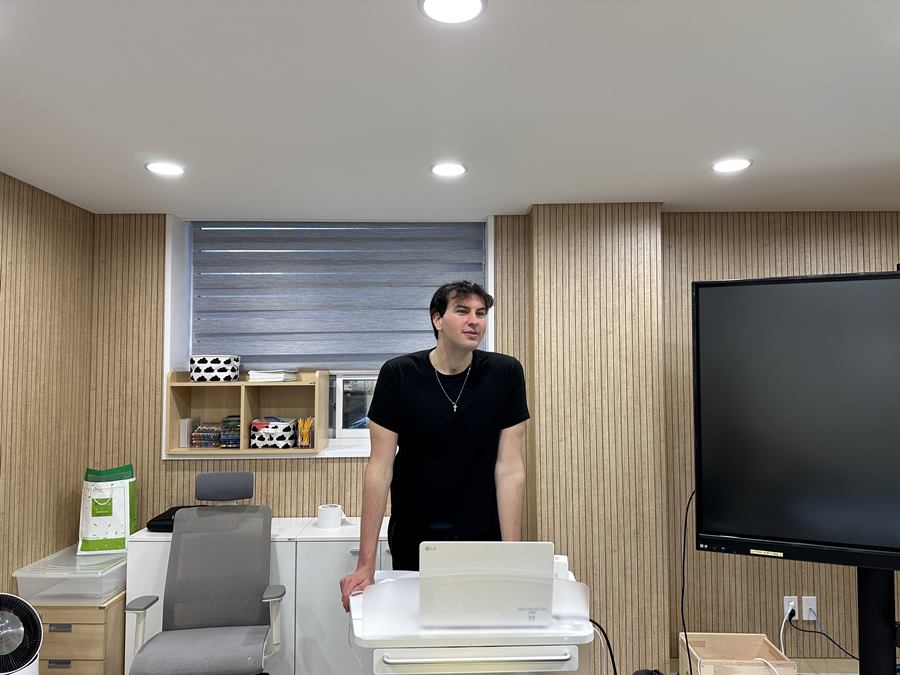Daily Busan
A conversation about Busan's 15-Minute City

As part of its 15-Minute City initiative, Busan has opened Deullak Nallak children’s libraries across the city. Roughly translated as “In and Out,” the cultural centers provide a space where kids and their families can read books, enjoy cultural events and participate in educational activities.
Daily Busan sat down with Samuel, who teaches English to 5 to 7 years old children at one of the centers. He talked about his work and life in Busan.
Q. How long have you been living in Busan?
A. I've been in Busan for a bit more than a year and a half. But I lived in Seoul for seven years.
Q. Please share your experience living in Busan.
A. Busan is amazing. People are more friendly and open to you. And they come to you warmly. You can feel it that they are warm. Busan is really fun. There's a lot of things to do. And people have been very proud of their identity. But Busan is very conservative and traditional, so sometimes it's really hard for Koreans to interact with foreigners or to approach them.
Q. How do you teach students? Do you have any special teaching skills for young kids?
A. So I think the most important thing to remind yourself of is that young kids, they have no focus. The attention span is so small that you have to have a lot of energy over time. You have to keep the energy going. You have to be very proactive and always make them do something. Always interact with them.
Q. Busan is currently implementing the English Friendly City policy. Please share your opinions about it.
A. If Busan is trying to have short term foreigners, it’s an amazing initiative. But if Busan wants to attract a foreign population to live in Busan, I think the best thing to do is to teach the local population how to live with foreign people. Because people don't know a lot about foreigners and foreign people, and you can feel it a lot. So in school, teach them culturalism or just have events or plans that make Koreans and foreigners interact with each other. I think that would be much more beneficial in the long run. Because foreigners that want to live in Busan anyways want to learn Korean.

